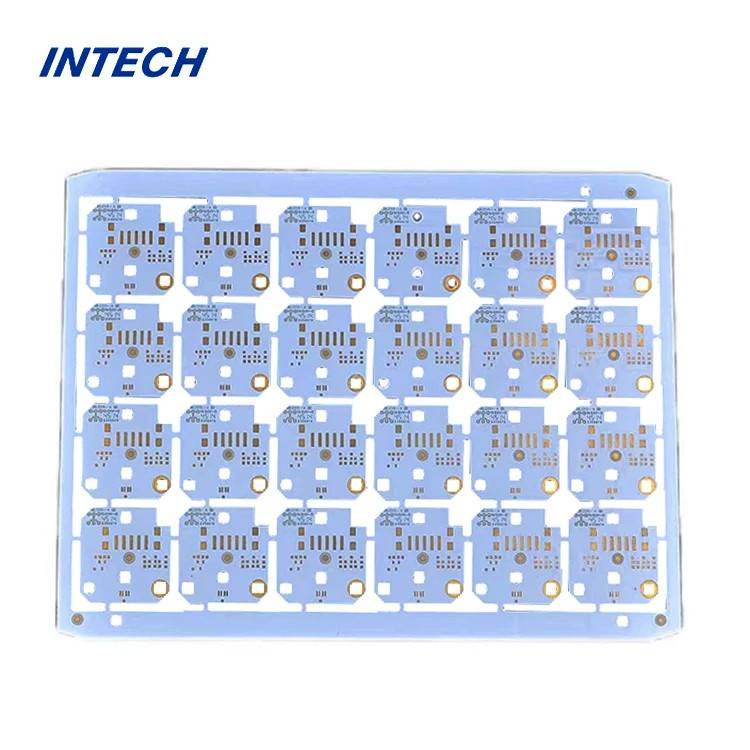When designing a PCB, PCB engineers often encounter various safety spacing problems. Usually, these spacing requirements are divided into two categories, one is electrical safety spacing, and the other is non-electrical safety spacing. So, what are the spacing requirements for designing PCB circuit boards? Circuit board factory xiaobian takes you to understand.Besides, we can’t ignore. china aluminum pcb assembly factory It has injected new vitality into the development of the industry and has far-reaching significance for activating the market. https://intechcircuit.com/
First, the electrical safety distance
1. Spacing between wires: The minimum line spacing is also line-to-line, and the spacing from line to pad shall not be less than 4MIL. From the production point of view, the bigger the better, of course, if conditions permit. General 10MIL is more common.
2. Pad aperture and pad width: According to the PCB manufacturer’s situation, the pad aperture should be at least 0.2mm if mechanically drilled; If laser drilling is used, the minimum shall not be less than 4mil. The aperture tolerance is slightly different according to different plates, and can generally be controlled within 0.05mm; The minimum pad width shall not be less than 0.2 mm.
3. Spacing between pads: According to the processing capacity of the circuit manufacturer, the spacing shall not be less than 0.2 mm..
4. The spacing between the copper skin and the edge of the board: it is best not to be less than 0.3mm. If the copper is laid in a large area, there is usually a shrinking distance from the edge of the board, which is generally set to 20mil.
Second, the non-electrical safety spacing
1. Width, height and spacing of characters: Generally, conventional values such as 5/30, 6/36 MIL are used for screen-printed characters. Because when the text is too small, it will be blurred when printed.
2. Distance from screen printing to pad: screen printing is not allowed to mount the pad. Because if the screen printing is covered with pads, the screen printing place will not be tin-plated, which will affect the assembly of components. General circuit board manufacturers require 8mil spacing. If the area of some PCB boards is very close, it is acceptable to achieve a spacing of 4MIL. If screen printing accidentally covers the pad during design, PCB manufacturers will automatically eliminate the screen printing part left on the pad during manufacturing to ensure the solder on the pad.
3. 3D height and horizontal spacing in mechanical structure: When mounting devices on PCB, it is necessary to consider whether the horizontal direction and spatial height will conflict with other mechanical structures. Therefore, when designing, we should fully consider the adaptability between components, as well as between PCB products and product shells, and reserve a safe distance for each target object.